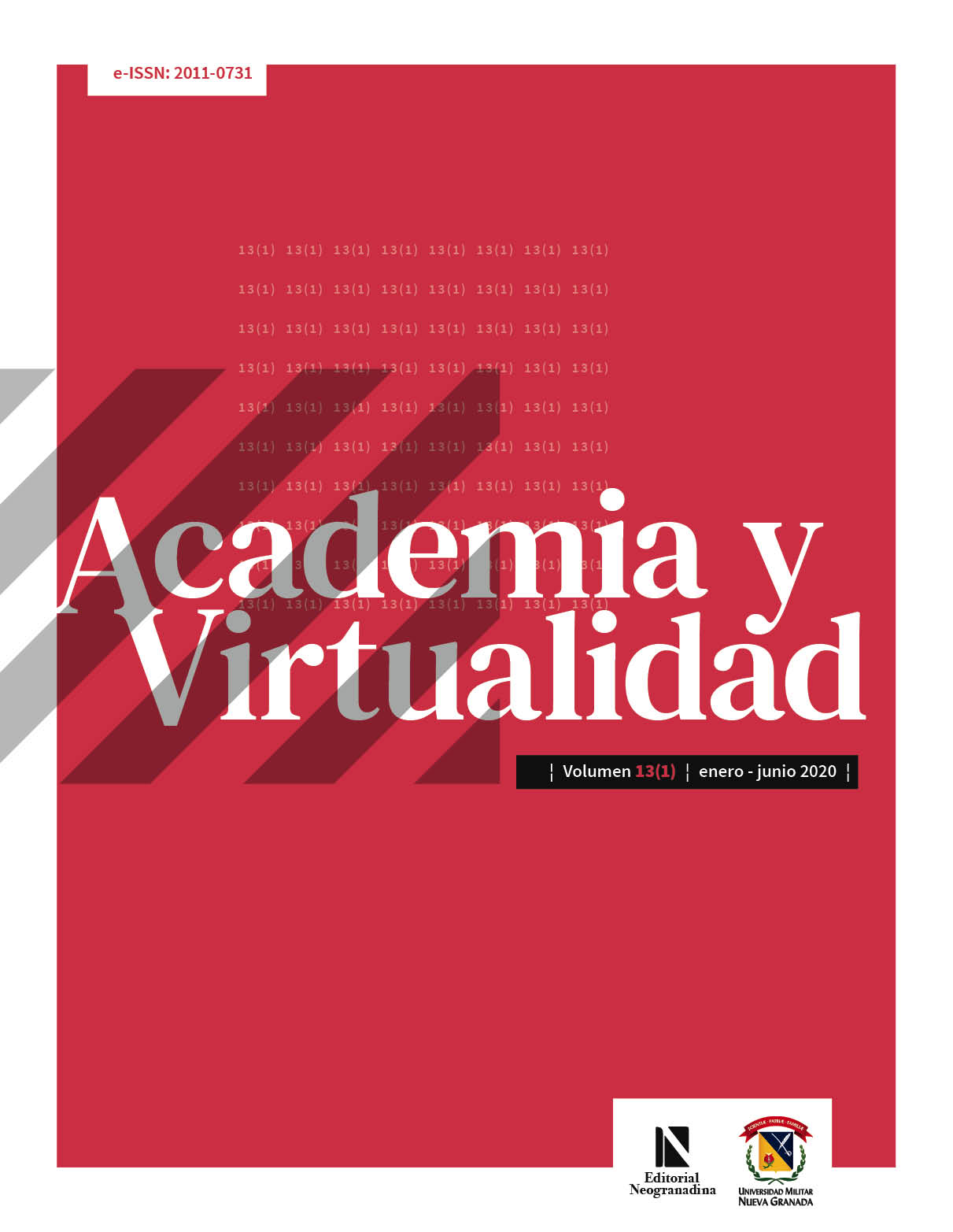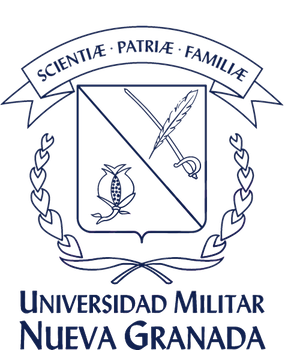Conceptions of Future Mathematics Teachers in the Context of Argumentation
Abstract
The objective or this research is to characterize the mathematical conceptions of future teachers in the resolution of ordinary differential equations in the context of argumentation. The collective argumentation concepts, the mathematical conceptions and ordinary differential equations constitute the research conceptual framework, reflected in the implementation of the enriched Toulmin model, a methodological tool that allows us to reconstruct the teachers’ conceptions from the mathematical argumentation. The findings of the research indicate that the mathematical conceptions of future teachers are grounded on representation systems and on the ways to prove solutions for ordinary differential equations in the case of orthogonal trajectories.
Downloads
References
Alsina, A. (2012). Proceso de transformación de las concepciones del profesorado sobre la resolución de problemas matemáticos. Enseñanza de las Ciencias, 30(3), 71-88.
Balacheff, N. (2013). cKc, a model to reason on learners' conceptions. En M. V. Martinez & A. Castro, Psychology of Mathematics Education, North American Chapter (pp. 2-15). Chicago.
Clemente, F. & Llinares, S. (2015). Formas del discurso y razonamiento configural de estudiantes para maestros en la resolución de problemas de geometría. Enseñanza de las Ciencias, 33(1), 9-27.
Conner, M. (2008). Expanded Toulmin diagrams: a tool for investigating complex activity in classrooms. En O. Figueras, J. Cortina, S. Alatorre, T. Rojano & A. Sepúlveda (eds.), Proceedings of International Group for the Psychology of Mathematics Education (Vol. 2, pp. 361- 368), México, Morelia.
Common Core State Standards Initiative. (2010). Common core state standards for mathematics. Washington, dc: National Governors Association Center for Best Practices and Council of Chief State School Officers. Recuperado de: http://www.corestandards.org/wp-content/uploads/Math_Standards.pdf
Conner, M. (2013). Authentic argumentation with prospective secondary teachers: the case of 0.99. Mathematics Teacher Educator, 1, 172-180.
https://doi.org/10.5951/mathteaceduc.1.2.0172
Conner, A., Singletary, L., Smith, R., Wagner, P. & Francisco, R. (2014). Teacher support for collective argumentation: a framework for examining how teachers support students' engagement in mathematical activities, Educational Studies Mathematics, 86 (2), 401-429.
https://doi.org/10.1007/s10649-014-9532-8
Eemeren, H. van & Grootendorst, R. (2014). Developments in argumentation theory. Recuperado de: http://www.dwc.knaw.nl/DL/publications/PU00010570.pdf
Flores, E. & Carrillo, J. (2014). Connecting a mathematics teacher's conceptions and specialized knowledge through her practice. En S. Oesterle, P. Liljedahl, P., C. Nicol & D. Allan (eds.), Proceedings of the Joint Meeting 3-81of pme 38 and pme -na 36, 3 (vol. 3, pp. 81-88). Vancouver: PME.
Hernández, R., Fernández, C. & Baptista, M. (2010). Metodología de la investigación. México: McGraw-Hill.
Hill, H. C. & Ball, D. L. (2004). Learning mathematics for teaching: results from California's mathematics professional development institutes. Journal for Research in Mathematics Education, 35(5), 330-351.
https://doi.org/10.2307/30034819
Inglis, M., Mejía-Ramos, J. P. & Simpson, A. (2007). Modeling mathematical argumentation: The importance of qualification. Educational Studies in Mathematics, 66(1), 3-21.
https://doi.org/10.1007/s10649-006-9059-8
Juárez, J. A. & Inzunsa, S. (2014). Comprensión y razonamiento de profesores de matemáticas de bachillerato sobre conceptos estadísticos básicos. Perfiles Educativos, 36(146), 14-23.
https://doi.org/10.22201/iisue.24486167e.2014.146.46024
Knuth, E. J. (2002). Secondary school mathematics teachers' conceptions of proof. Journal for Research in Mathematics Education, 33(5), 379-405.
https://doi.org/10.2307/4149959
Krummheuer, G. (1995). The ethnology of argumentation. En P. Cobb & H. Bauersfeld (eds.), The emergence of mathematical meaning: interaction in classroom cultures (pp. 229-269). Hillsdale: Erlbaum.
Krummheuer, G. (2007). Argumentation and participation in the primary mathematics classroom. Two episodes and related theoretical abductions. Journal of Mathematical Behavior, 26(1), 60-82.
https://doi.org/10.1016/j.jmathb.2007.02.001
Leiria, A. C., González, M. T. & Pinto, J. E. (2015). Conocimiento del profesor sobre pensamiento estadístico. PNA, 10(1), 25-52.
Nardi, E., Biza, I. & Zachariades, T. (2012). "Warrant" revisited: integrating mathematics teachers pedagogical and epistemological considerations into Toulmin's model for argumentation. Educational Studies in Mathematics, 79(1), 157-173. doi: https://doi.org/10.1007/s10649-011-9345-y
https://doi.org/10.1007/s10649-011-9345-y
Pedemonte, B. & Balacheff, N. (2016). Establishing links between conceptions, argumentation and proof through the cKc-enriched Toulmin model. Journal of Mathematical Behavior, 41, 104-122.
https://doi.org/10.1016/j.jmathb.2015.10.008
Pinto, J. E. (2010). Conocimiento didáctico del contenido sobre la representación de datos estadísticos: estudios de casos con profesores de estadística en carreras de psicología y educación (Tesis doctoral inédita). Departamento de Didáctica de la Matemática y de las Ciencias Experimentales, Universidad de Salamanca.
Ruiz, O. F., Márquez, C. & Tamayo O. E. (2014). Cambio en las concepciones de los docentes sobre la argumenta- ción y su desarrollo en clase de ciencias. Enseñanza de las Ciencias, 32(3), 53-70.
https://doi.org/10.5565/rev/ensciencias.985
Salinas, N. & N. Sgreccia. (2017). Concepciones docentes acerca de la resolución de Problemas en la escuela secundaria. Revista Números, 94, 23-45.
Simon, M. (2000). Research on the development of mathematics teacher: the teacher development experiment. En A. Kelly & R. Lesh (eds.), Handbook of research design in mathematics and science education (pp. 335- 359). Mahwah, NJ: Lawrence Erlbaum Associates.
Toulmin, S. (2003). The uses of argument. Nueva York: Cambridge University Press.
https://doi.org/10.1017/CBO9780511840005
Toulmin, S. E., Rieke, R. D. & Janik, A. (1984). An introduction to reasoning (2a ed.). Nueva York, Londres: Macmillan.
Valverde, G. (2014). Experimentos de enseñanza: una alternativa metodológica para investigar en el contexto de la formación inicial de docentes. Revista Electrónica "Actualidades Investigativas en Educación", 14(3), 1-20.
Varghese, T. (2009). Secondary-level student teachers' conceptions of mathematical proof. IUMPST: The Journal, 1, 1-14.
Wagner, P., Conner, A., Singletary, L. & Francisco, R. (2014). Using Toulmin's model to develop prospective secondary mathematics teachers' conceptions of collective argumentation. Mathematics Teacher Educator, 3(1), 8-26.
https://doi.org/10.5951/mathteaceduc.3.1.0008
Whitenack, J. & Knipping, N. (2002). Argumentation, instructional design theory and student's mathematical learning: a case for coordinating interpretive lenses. Journal of Mathematical Behavior, 24(4), 441-457.
https://doi.org/10.1016/S0732-3123(02)00144-X
Yackel, E. (2002). What we can learn from analyzing the teacher's role in collective argumentation. Journal of Mathematical Behavior, 21, 423-440.
https://doi.org/10.1016/S0732-3123(02)00143-8
Zill, D. G. (1997). Ecuaciones diferenciales (6a ed.). México: Thomson.












